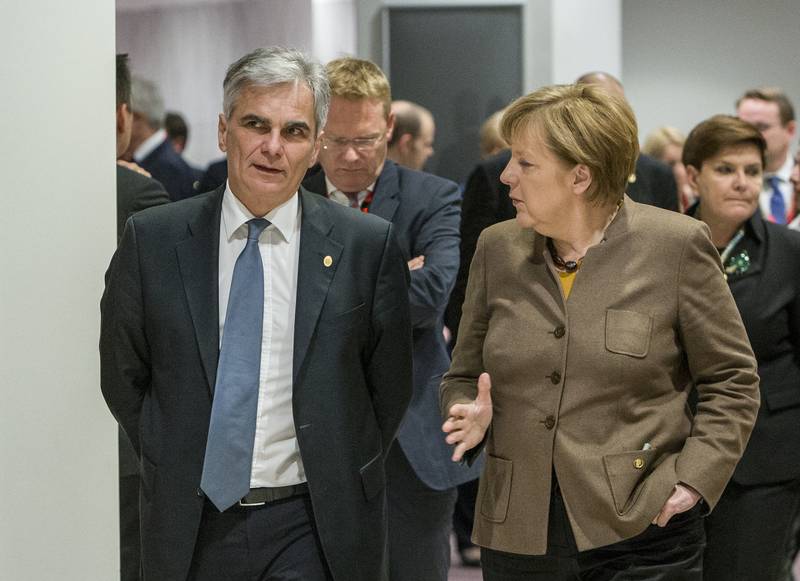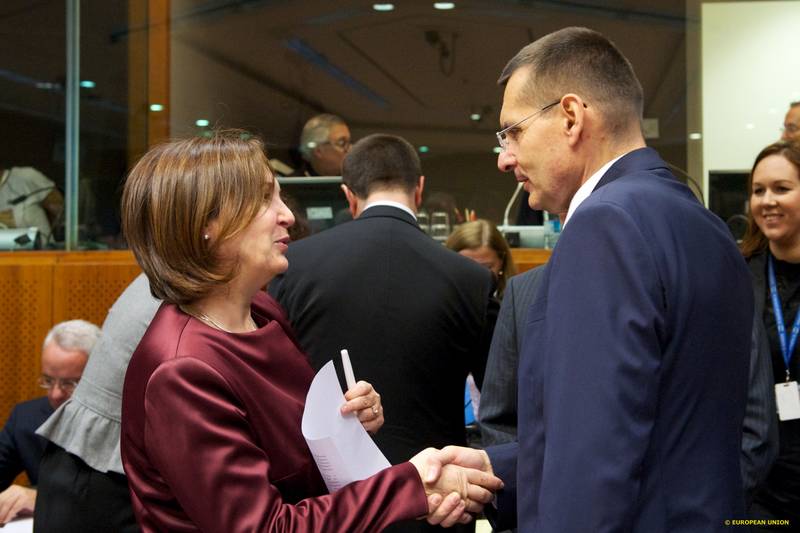Bulgaria's accession to Schengen will after all be bound to the CVM report
Ralitsa Kovacheva, November 13, 2010
 After March 2011, the decision on the accession of Bulgaria and Romania to the Schengen area will be entirely political. And most of all – it will depend on the European Commission's report under the Cooperation and Verification Mechanism (CVM) in the area of justice and home affairs. So far, any connection between the Schengen and the CVM was persistently denied, both by the two countries and by the EU. For several days, however, though formally nothing has changed, it is being officially acknowledged that the CVM report will be crucial for the accession of Romania and Bulgaria into the Schengen area.
After March 2011, the decision on the accession of Bulgaria and Romania to the Schengen area will be entirely political. And most of all – it will depend on the European Commission's report under the Cooperation and Verification Mechanism (CVM) in the area of justice and home affairs. So far, any connection between the Schengen and the CVM was persistently denied, both by the two countries and by the EU. For several days, however, though formally nothing has changed, it is being officially acknowledged that the CVM report will be crucial for the accession of Romania and Bulgaria into the Schengen area.
First was the Netherlands
It was the Netherlands that first raised the issue of linking the accession of Bulgaria and Romania to Schengen with the results of the Commission reports on the progress in justice and home affairs. The coalition agreement between the People's Party for Freedom and Democracy (VVD) and the Christian Democratic Alliance (CDA), stipulates:
"In the context of Europe, the government will argue for the inclusion of the two-yearly reports on corruption and legal reform in Romania and Bulgaria in the Schengen evaluation of these two countries. If these reports show that they do not meet the strict criteria, the Netherlands will not support the full accession of Romania and Bulgaria to Schengen and abolition of the internal border controls in the EU, and Bulgaria and Romania will not be admitted to Schengen."
The French offensive
These days the French European Affairs Secretary Pierre Lellouche said that the  EU must be "vigilant" with regard to the enlargement of the Schengen zone to Bulgaria and Romania, which hope to join in March, EUobserver wrote. According to Lellouche the enlargement should not be automatic, and technical criteria are not sufficient. The French position is that the decision to admit the two countries in the Schengen should be postponed at least until the summer of 2011, when the Commission will present its annual reports on the fight against corruption and organised crime in the two countries. He also stated that the latest reports of the Commission were "worrying", as they noted too little progress in the two countries.
EU must be "vigilant" with regard to the enlargement of the Schengen zone to Bulgaria and Romania, which hope to join in March, EUobserver wrote. According to Lellouche the enlargement should not be automatic, and technical criteria are not sufficient. The French position is that the decision to admit the two countries in the Schengen should be postponed at least until the summer of 2011, when the Commission will present its annual reports on the fight against corruption and organised crime in the two countries. He also stated that the latest reports of the Commission were "worrying", as they noted too little progress in the two countries.
French Foreign Ministry spokesman Bernard Valero was even more specific: "Schengen membership must take place under conditions which ensure the integrity and security of the common area - conditions which are not currently available and will not be by March 2011 ... . In its latest report in 2010 the European Commission noted some progress, but stressed the need the job to be completed. Under these conditions, we believe that we must await the presentation of the next Commission report under the CVM in July 2011."
Bulgarian position
 According to Bulgarian Foreign Minister Nikolay Mladenov, though there is no formal link between the accession to the Schengen area and the CVM, there is a political link and a future decision will depend on the results in the report: "... we should not delude ourselves that, although there is no formal link between the process to join Schengen and the CVM (there is no direct link, they are quite different), we can afford any delay of the government's priorities in the implementation of judicial reform."
According to Bulgarian Foreign Minister Nikolay Mladenov, though there is no formal link between the accession to the Schengen area and the CVM, there is a political link and a future decision will depend on the results in the report: "... we should not delude ourselves that, although there is no formal link between the process to join Schengen and the CVM (there is no direct link, they are quite different), we can afford any delay of the government's priorities in the implementation of judicial reform."
The Foreign Minister explained that "the political situation in Europe which operates at the moment, the pressure of the public opinion" should be taken into account, and is being taken into account by political leaders in Europe. He said that nobody in the EU "wants the rules enshrined in our Accession Treaty, the rules enshrined in the previous Schengen enlargement to be changed because of Bulgaria and Romania."
According to Minister Mladenov, the preconditions for Bulgaria's accession to the Schengen include the implementation of the technical criteria until March 2011, an interim positive report from the Commission in February (which means the Judiciary Act to pass through the Parliament, the Minister underlined) and finally - a positive yearly report in the summer to show real progress.
European Commission
European Commissioner for Home Affairs Cecilia Malmström said the  accession of Bulgaria and Romania to the "Schengen" should not be based on political matters, because the process involves only technical procedures. But, she added, the authorities in Bucharest and Sofia must continue working to meet Schengen accession criteria, so that those who don’t want to see the two countries in the border-free zone would have less arguments to back their stance.
accession of Bulgaria and Romania to the "Schengen" should not be based on political matters, because the process involves only technical procedures. But, she added, the authorities in Bucharest and Sofia must continue working to meet Schengen accession criteria, so that those who don’t want to see the two countries in the border-free zone would have less arguments to back their stance.
So ultimately, the Justice and Home Affairs Council will take a decision on whether Bulgaria and Romania will join Schengen on the basis of compliance with the technical criteria and the findings of the CVM report of the Commission. In order both countries to be accepted, an unanimous support by all member states is needed, even by those that are not part of the Schengen area.
The logical outcome
 This, as it appears, will happen only if both countries make a real progress in fighting organised crime and corruption. Because the protection of EU's external borders is not just a matter of information systems with exotic names, but of a functioning justice and rule of law. This is what Europeans expect from Bulgaria and that is all Bulgarians expect from their country too.
This, as it appears, will happen only if both countries make a real progress in fighting organised crime and corruption. Because the protection of EU's external borders is not just a matter of information systems with exotic names, but of a functioning justice and rule of law. This is what Europeans expect from Bulgaria and that is all Bulgarians expect from their country too.
 Werner Faymann, Angela Merkel | © Council of the EU
Werner Faymann, Angela Merkel | © Council of the EU Rumyana Bachvarova, Petre Toba | © Council of the EU
Rumyana Bachvarova, Petre Toba | © Council of the EU Meglena Kuneva | © Council of the EU
Meglena Kuneva | © Council of the EU | © European Parliament
| © European Parliament | © The Council of the European Union
| © The Council of the European Union | © European Parliament
| © European Parliament